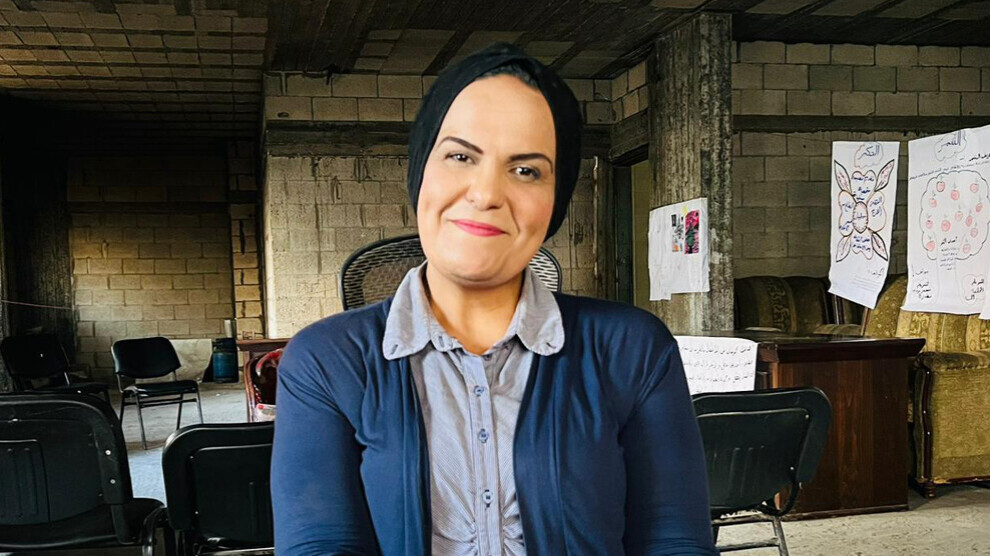“I Left My Face in the Mirror”: A Gazan Writer Records Pain and Survival
Amid bombing and forced displacement, Gazan writer Fidaa Abu Mariam documents her survival and her city’s resilience. Her book “I Left My Face in the Mirror” allows readers to feel her words deeply and carry her memory forward.

Rafeef Sleem
Gaza –Abu Mariam believes that while “history is written by the victors and news is filtered through the agendas of media outlets and states, art belongs to the victims.” For her, art is truth: the voice of those who lived the suffering. When she writes, she feels as if she is holding in her hands a document that records every wound.
Her journey as an author began unexpectedly. Initially, she shared daily posts on Facebook—responses to the question “How are you?” At the time, she was simply answering as a Palestinian woman living under what she describes as a campaign of genocide in Gaza. A year and a half later, those posts became a book: “I Left My Face in the Mirror.”
Writing as survival
Before the war, Abu Mariam worked as a schoolteacher. Today, she identifies as a writer and blogger. For her, the book reflects a natural path: “The sea was the first mirror where humans saw their reflection,” she says, recalling her childhood near Gaza’s shore.
She likens the assault to the sea’s waves: “The sea erases both the good and the bad with its restless dance, yet it retains its own beauty. The title of my book reflects the scars the attack left on the human soul—and on me as a woman.” She remembers being forced to leave her home suddenly, without farewell, a rupture she translated into text.
“Writing during war is not a luxury,” she explains. “It is psychological first aid. Before the war, writing was something of a pastime, exchanging words with friends or polishing a friend’s draft. But under bombardment, it became the only way to survive.”
Every day, her inbox filled with messages from friends abroad asking, “How are you?” A question, she says, that felt “heavier than a hammer. What could I answer when the news was already telling the story?” Instead, she began posting daily texts on Facebook to capture her reality.
What started as a challenge to herself became a responsibility: people in Gaza began asking her to tell their story too.
A woman in the mirror of war
Her book raises a central question: What does it mean to live as a woman in Gaza during war? Is she the face the cameras focus on, an object of pity, or a symbol of resilience?
Through her words, she insists on an authentic narrative—one that conveys hunger, fear, and the precarious margin of survival: “Death comes for us many times a day. Survival is never a choice—it is an accident.”
For Abu Mariam, every text became evidence, a testimony to forced hunger, displacement, and the theft of Gaza’s intellectual and cultural life. She carefully dated her entries, determined not to let memory betray her.
Storytelling as identity
“To be Palestinian is to have a story worth telling,” she says. “Everyone can speak, but no one tells stories like women. We inherited this from our mothers and grandmothers, and we add imagination—that is the essence of storytelling.
Her message to women everywhere: “You can all write.”
Published in Arabic and Greek by Dar Al-Salam Publishing, “I Left My Face in the Mirror” is both testimony and cultural preservation. Alongside this work, Abu Mariam has translated Palestinian literature—including writings by Mahmoud Darwish, Samih al-Qasim, and other Palestinian women writers—ensuring that Gaza’s voices reach readers far beyond its borders.
